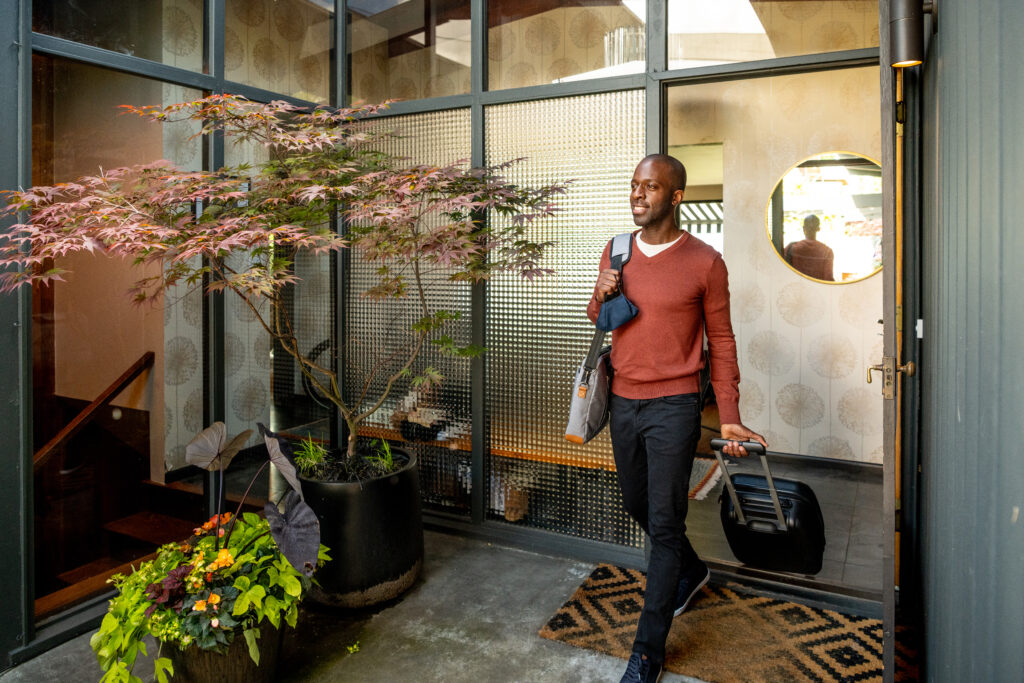


According to the findings of the SAP Concur Global Business Travel Survey, two-thirds of business travellers feel that traveling for business is critical to their career advancement. However, the survey also found that most professionals don’t feel they have an equal opportunity to take business trips compared to their colleagues.
“Three-quarters of business travellers say they enjoy business travel, but a growing number feel their opportunities to do so are diminishing,” says Genevieve Koolen, Human Resources Director at SAP Africa. “Common reasons cited by respondents include their level of seniority (19%), their age (18%), where they live (14%) and their status as parent or caretaker (14%). Surprisingly, 12 percent of respondents said they have fewer opportunities to travel for business due to how often they come into the office, which clearly has implications for remote and hybrid workers.”
The global business travel market was valued at $742.9-billion in 2022 and is projected to reach nearly $2-trillion by 2030. There are an estimated 445 million business trips every year.
Following the disruption caused by the pandemic which brought the global business travel market to a standstill, the market has recovered. However, disruption continues to plague the sector.
“Nearly nine in ten business travellers we surveyed said they’d experienced a significant impact from a travel disruption in the past year,” says Koolen. “These disruptions are not only bad for business, but also for employees’ work-life balance, who often have to spend additional, unplanned days on their trip or sit through longer layovers.”
According to the survey, common disruptions affecting business travellers include unexpected delays or cancellations, safety concerns, and trips getting re-routed.
“In response, the majority of business travellers (80%) are proactively taking steps to account for disruptions, including booking extra time for arrival, departure, or both,” explains Koolen. “Companies can also play a supporting role by investing in travel management solutions that help business travellers stay informed of potential disruptions and allow them to make quick changes to their trip to mitigate any issues.”
One of the most pressing challenges for business travellers is their companies’ need to balance flexibility with cost-efficiency. “The top two focus areas for companies regarding their business travel are meeting employees’ needs for flexibility and cutting back on travel costs. Nearly all business travellers have seen their companies cut back on certain travel options over the past year, most notably options to add personal travel days to their business trip and allowing remote work while traveling to avoid having to take leave days.”
Understanding employees’ needs and concerns over business travel can help companies ensure they adjust policies accordingly. “It’s essential that companies take necessary steps to keep employees safe and minimise negative experiences and undue disruptions during their business trips,” says Koolen.
Some of the steps companies can take to address business travel challenges include:
Regular surveys of employees, both before and after business trips, can help companies gather valuable insights into their experience. This can inform changes to business travel policies that may reduce disruptions and avoid negative experiences.
“Companies should check in with employees and ask them questions around their perceived levels of access to business travel opportunities, challenges experienced during recent trips, safety concerns, and familiarity with company travel policies,” says Koolen. “In addition, companies should ensure employees have easy access to resources that enable employees to resolve common challenges.”
While collecting data around business travel challenges and experiences is vital, it’s even more important to act on that data. “Companies must use the insights they gain from employee surveys and interactions to develop actionable plans for enhancing business travel experiences,” says Koolen.
Such plans may include revisiting travel policies to remove opportunities for friction, both while booking trips and traveling for work. “Companies need to ensure the right tools are in place to help travellers navigate common challenges, and remain agile in their approach to resolving travel-related issues.”
Koolen says the push-and-pull between the needs of companies and their employees may soon get some help from AI. “Nearly all employees in the survey said they are open to using AI-enabled options for booking their business travel. However, only 7% are comfortable doing so right now, pointing to an urgent need for companies to provide training and support around using AI.”
According to the survey, business travellers are most willing to consider AI automation for administrative tasks, including guidance on safety and wellbeing, visa and documentation support, capturing expenses, and finding sustainable travel options.
“AI-enabled tools may help companies address some concerns among their employees, but the most important aspect is not the tool itself, but the reasons for offering it: making business travellers’ lives easier. By taking care in how AI is introduced, companies can ensure AI-powered tools empower employees to improve the quality of their business trips while maintaining a healthy work-life balance.”